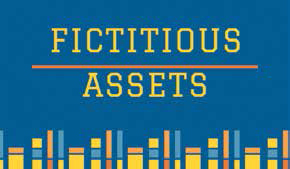Many a fraudulent means have been employed to make money by many a rich and famous. But what emerges is the level of selfishness and greed that these individuals can stop to, as this first-hand experience of the author shows
As a taxman, I have had the opportunity to interact with some really rich people and in the process, I had a glimpse into some of their personality traits. I met some really good and intelligent people, but I also had encounters with some very selfish, greedy people for whom only personal wealth mattered. These people had no sense of patriotism or any sense of social responsibility. They existed to live only for money, and making money without any fear of law, social-restrictions or morality. Here, I recount some of my experiences in order to give an insight into the psychology of such rich people, who according to me, were failures in spite of having enormous wealth.

This instance pertains to a well-known industrialist of South Mumbai. He was known to give jobs to needy youngsters and that way he was considered a respected philanthropist. I conducted a search action against him and discovered to my surprise that all the young employees had to open bank accounts in different banks as per the direction of the employer and had to hand over signed blank cheques to him.
These bank accounts were used by the said industrialist-cum-philanthropist to run his clandestine illegal business. Cash collections from illegal activities were deposited in these bank accounts and then the money was recycled into the main business through cheques against these bank accounts. No tax was paid on the income from this illegal activity, while the young employees would have been liable for penal action as the transactions were in their names.
The statements of the youngsters recorded in the course of the search proceedings revealed that they were unaware of these dealings in their bank accounts. They blindly did what they were asked to do in order to get jobs. Thus, the rich man exploited the job needs of the poor to earn money for himself.

Looting public money from public sector banks has been an age-old practice of a section of our rich and powerful people. The cases of Nirav Modi and Vijay Mallya are recent examples, the difference being that earlier there was no media glare.
I also recollect the case of one of the biggest companies which built its empire by inflating its invoices through the help of market brokers while taking a loan from banks for plant and machinery. Banks disbursed almost 100% higher amount than the actual cost of the machinery. The promoter of the public limited company with the help of the brokers got huge amounts of unearned income, being the excess from the money advanced for the plant and machinery. In a second step, the industrialist routed the money thus generated into self-created shell companies which then became investors in his company. Since he had the voting rights of these shell companies, with the use of the money that the banks had advanced for plant and machinery, he controlled the newly opened public limited companies.

Taking loans against non-existent fictitious assets has been a common modus-operandi to cheat banks. In the majority of such cases, the banks where either complacent or negligent, which was an important reason for banks ending up with huge non-performing assets. In one widely published case of cheating by a well-placed business group, 30 paper companies were incorporated by the group where poor drivers, domestic servants, gardeners were listed as directors. These paper companies were operated from one room and had no infrastructure, nor any genuine business dealing. All these companies were used by the group to create bogus sizeable turnover through bogus purchase and sale entries amongst themselves. The group had patronized a leading public sector bank and built up relations with its officers who had advanced huge loans to these paper companies based on illusionary turnover, which ultimately became a non performing asset of the bank. The search operation revealed that some bank officers were also being blackmailed, as the group had created uncomfortable evidence against them.

In some cases, I discovered that money was being made with utter disregard for human lives. Enquiries revealed that some mid-level pharmaceutical companies were producing substandard drugs. Though not poisonous, they were neither drugs in any way, except that they were nicely packed like capsules. Such drugs were sent to the backward parts of the country and there were doctors on the hospitality list of these companies who prescribed such drugs. One such company was caught and a police case was initiated as the company was manufacturing psychedelic party drugs in the garb of pharmaceutical drugs.
Another method was by misusing exports. Exports are important for the country’s economic growth and for a favourable balance of payment. This was in many cases being used as a tool for round-tripping of black money, and also to claim export-related benefits when there was no actual export. In the diamond business, rough diamonds are imported for cutting and polishing, and with this value addition, the same is exported. In such business transactions, there is no incidence of liability of import duty, as the import is linked with the export.

While working with the DRI I discovered that in many cases, ordinary stone parcels were sent out instead of polished diamonds, while the real polished diamonds were kept back for sale in the domestic market. In the process, custom duty was evaded on the import of rough diamonds, while export benefits were claimed against bogus packets of stones. Such dubious exports used to be made to friendly parties who would honor these stone packet consignments. These friendly parties would make payments from official banking channels against black money sent abroad through the hawala channel or through under-invoicing and over-invoicing. This round-tripping of money also helped them to launder money.

People having substantial black money generally have no fear of the law. They know that they will come out of it, if caught by the law, either by their connections or by giving bribes. I remember an incident which happened when I was very new to the department. I was given a call by the Customs department that a huge consignment of cash was found with a traveller at the Mumbai airport and that the same was required to be seized by the Income Tax department.
It was early in the morning and I reached the airport to see a young boy with cash in the custody of the Customs department. I started the proceedings by recording his statement. He said that there was no need for any statement. He said that he was the employee of a well-known company and that nothing would happen to him or to the cash in his possession. However, he said that I could take a part of the cash for my personal benefit. I told him that I would not take a bribe and that the entire cash would be seized. On hearing this, he told me that I was very foolish and that the cash seized would be released within days as bribes would be given by his company and taken by my seniors. He added that he had offered a part of the cash to me, as he was a kind person and as I had taken pains to come to the airport in the early hours of the morning. I was surprised to see such scant respect for the law.
In another such case, the managing director of the company being searched rudely told me to stop the search operation and asked me to quote my price for doing this. When told that I was without any price-tag, he threatened me by dropping the names of ministers. For him, there was no fear as he was a well-connected person. However, the search operation was successful and ultimately a tax demand of more than a hundred crore’s was raised.

A large section of rich people believes that tax payment is not their constitutional duty. Money earned by them is fully theirs and they do not owe any part of such money to the government. They believe that tax becomes payable only when caught without any escape route. I would like to relate one incident when I was recording the statement of one of the biggest builders of Mumbai against whom I conducted searches twice in a span of six months. I spent eight hours in recording his statement and it was really frustrating as he never answered any question properly. His answers were totally irrelevant. On seeing my discomfiture, he said that he would not pay any tax on his income till the Income Tax department was able to detect it with evidence, and so he was deliberately sabotaging the process of statement recording.
My experiences led me to conclude that one can become rich and famous but may not always be a good human being or a good citizen of the country. It is the greed factor which distinguishes a good person from mere money-making machine with total disregard for the country. Greed is a bottomless pit which drags a person into an endless effort to satisfy the needs without ever getting satisfied. Greed has no boundaries and since fraud is the daughter of greed, the seeker of greed indulges in fraudulent activities like tax evasion. I am indebted to my department for these opportunities of first-hand experiences of aspects of human behaviour while carrying out my official duties.
by S K Jha